
There are many great reasons for investing in air conditioning for your home or business. Air conditioning can substantially enhance comfort levels and can play a pivotal role in boosting productivity. Though sales of Birmingham air conditioning systems tend to be high during the warmer months, a large number of systems are also purchased in the autumn and winter.
Why should I invest in air conditioning?
One reason why individuals and businesses invest in an air conditioning service in Birmingham during the colder months of the year as well as in the summer is that air conditioning systems can also provide us with high-quality warm air. The dual capability of air conditioning ensures sales remain high throughout the year. A commonly-cited reason for investing in air conditioning is to purify the air. Air conditioning units can provide us with healthy, clean air and often feature anti-fungus filters which are designed to remove dust and mites from the air.
Air conditioning systems can change the feel of your environment quickly. When the temperature drops, you can add warm air to your space within moments. When it rises, you can swiftly send cool air through your space. You can also adjust the humidity in most modern systems so your environment never becomes sticky.
Another reason for investing in an air conditioning service or facility for your home is to ensure your space is well-ventilated when you are away from home. Leaving your windows open when you are out can be extremely risky, and you may find it hard to make a claim if a trespasser does make their way in through an open window. When you have the right system in place, you can keep the windows closed without missing out on the ventilation that you desire. All you need to do is simply use the cooling function on your system to achieve the results you require. Air con can also help you get a better night’s sleep as temperature-related problems often lead to difficulty with drifting off.
You also stand a great chance of reducing your energy bills when you invest in a quality air conditioning unit, especially when you are using it to heat your home. The specialist heat-pump technology found in many modern systems is up to 80% more energy-efficient than conventional home-heating facilities, which make them ideal for those worried about incurring sky-high charges for keeping themselves warm in winter. More and more home and business owners are experiencing the benefits of investing in quality air conditioning services, and there are many reputable companies on the market that can direct you to the best products for your needs.
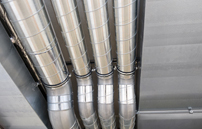
Facts about air conditioning
Air conditioning systems, as we know them today, were first developed by Willis Haviland Carrier in 1902. The system was designed to solve an issue with humidity at the Sackett-Wilhelms Lithographing and Publishing Company in New York. Stocks of paper were often absorbing moisture from the summer air, which was compromising the efficiency of the layered inking techniques used during the period. Carrier decided to blow the air in the building across chilled pipes and found that its temperature dropped as it made its way through the pipes. This was because cool air isn’t able to carry as much moisture as warm air.
The process reduced humidity levels whilst stabilising the moisture content in the paper. The air temperature was also reduced by the process. Before long, more and more systems inspired by Carrier’s solution were appearing in commercial environments like shops and theatres, providing workers and customers with the comfort they required.
When air conditioning solutions first hit the market, output settings were measured as “ice power”. Ice power related to how many blocks of ice would be needed to produce the same level of coolness. Today, output settings are measured in AC units.
Air conditioning systems are often compared to refrigerators, with the walls in your building playing the same role as the exterior plays in a fridge. The first air conditioning system to be built into a home was added to a Minneapolis mansion in 1913. Unfortunately, the homeowner Charles Gates passed away before it was completed. The term “Summer Blockbuster” was inspired by air conditioning. During the 1930s, cinemagoers headed to the pictures not only to see the latest movies but to enjoy the comfort provided by the air conditioning systems in theatres during the summer months. This led to film studios saving their biggest titles for the summer.
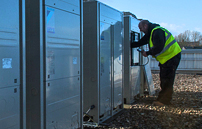
The first President to get air conditioning in their office was Herbert Hoover. The installation cost $30,000 and was purchased just as the Great Depression was getting underway. It’s said that your chances of passing away on a hot summer day has dropped by 80% during the past five decades. Air conditioning has been linked to this substantial fall. In 1939, the first car with air conditioning was launched by Packard. However, it wasn’t a big seller due to the size of the evaporator and blower system or its substantial cost.
How air conditioning can help businesses meet regulations
The reasons for businesses investing in quality air conditioning systems are numerous. There have been many stories in the press about employees being forced to work in tough conditions during hot summers because their employers have failed to invest in quality air conditioning units. This not only contributed to low workplace morale but reduced productivity levels too, with the reputations of many employers taking a big hit.
By investing in a quality air conditioning system, businesses can keep their employees happy, comfortable and productive. Whilst many employees are unlikely to notice that an air con system has been installed, there are certainly likely to experience significant discomfort if one isn’t present. When you invest in the right air conditioning units, you can boost productivity, increase morale levels and hopefully see a rise in profits.
There are many different types of air conditioning system on the market, which means it’s a good idea to spend time investigating your options and speaking to professionals who can direct you towards the best and most suitable solutions for your company.
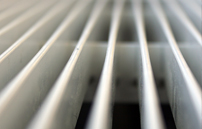
Getting the right air conditioning system in place can help you meet UK and EU regulations. The Workplace (Health, Safety and Welfare) Regulations 1992 say that employers are obliged to maintain reasonable temperatures. The minimum temperature is normally 16°C, but this is reduced to 13°C when work involves substantial amounts of physical activity. Though there is no specific maximum temperature, employers are also obliged to prevent workplaces becoming uncomfortably hot. You should also install thermometers around the working environment so the temperature can be checked on a regular basis.
Air conditioning helps you not only maintain a suitable temperature but also enables you to win the battle against humidity. You should maintain a humidity level of between 40% and 70%. There have been calls for an upper limit on temperature to be introduced which would force employers to take action when temperatures reached 24°C. If temperatures reached 30°C, or 27°C for workers engaging in physically demanding work, employers could face prosecution and staff could be sent home. Though these plans have not been made a reality as yet, there is increasing pressure on the government to bring the legislation in. Air conditioning can help you maintain a comfortable temperature and humidity level for staff at all times.
How it works
Air conditioning takes heat from inside your home and sends it outside, so you can achieve the cool temperatures you are seeking. They send cool air into your home from outside, taking the heat out of it in the process. The air is cooled when it is blown over a series of cold pipes known as an evaporator coil. The coil is filled with a liquid called a refrigerant. When the refrigerant absorbs heat from the air, it turns into a gas. The refrigerant is pumped outside the building to another coil. It then loses its heat and is transformed back into a liquid. The outside coil is known as a condenser. This is because the refrigerant condenses back to a liquid. A compressor moves the refrigerant between the two coils and is tasked with changing the refrigerant pressure so it evaporates and condenses in the relevant coils. The motor running the compressor has the energy needed so all these tasks can be carried out.
It’s essential that air conditioning systems are maintained on a regular basis in line with the instructions that come with them. If you fail to maintain your air conditioning units when you need to, you may need to replace them much sooner than you would like. Most simple jobs can be carried out by untrained individuals, but some tasks will need to be carried out by professionals.
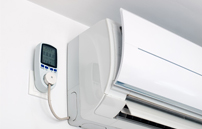
Increasing the energy-efficiency of air conditioning systems
There are many steps you can take to boost the energy-efficiency of your air conditioning systems. Sealing leaky ducts is one of the most important steps you can take, and you can also make your solutions as energy-efficient as possible by replacing filters when they are dirty, maintaining the right level of charge and airflow and cleaning the coils on a regular basis.
You can also benefit from ensuring the condenser unit outside your building is not hidden so air flow is not blocked and the unit is not clogged by leaves, litter and other debris. If the time to replace an existing air conditioner has come, or if you’re buying an air conditioning unit for the first time, you should seek out the most efficient equipment available to you. Many solutions come with a Seasonal Energy Efficiency Ratio or SEER that tells you how energy-efficient products are. It’s wise to opt for a minimum SEER 13 rating.
There is another rating called the Energy Efficiency Rating which tells you how well the system will work in particularly challenging climates. If humidity is of particular concern to you, find out how efficient the unit is at dehumidifying.
Types of air conditioning for homes
There are two main types of air conditioning available to you if you’re seeking solutions for your home. These are single-unit and split-unit models. Single-unit models are portable and are vented through windows and doors, whilst split-unit models are fixed to walls permanently.
Single-unit air conditioning models are an affordable option for cooling your home or office and are easy to install. Units can be moved from room-to-room as hot air is vented out via a hose. Some units can be heavy and bulky, so make sure you opt for a model that you’ll be able to move around with relative ease.
Split-unit air conditioners are a great match for those with one room that gets particularly hot and mean you don’t need to leave windows or doors open to achieve the temperatures that you desire. They are also quieter than single units and can be more powerful though more expensive. These unites need to be mounted permanently on an exterior wall, so you may need to get help from the professionals when you are installing one.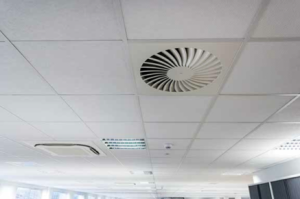
What does BTU mean?
BTU stands for British Thermal Unit. Though air conditioner systems come in many different shapes and sizes, the BTU is one of the first things you’re likely to look for when comparing air conditioning solutions. The higher the BTU is, the more efficient the product is at cooling rooms. It’s wise to opt for a BTU between 5,000 and 8,000 when buying solutions for homes and small offices. One way to work out what BTU you need is to multiply the dimensions of the space by five. For instance, a 17 x 13 x 10 foot room would need a BTU of 11,050. Whether you’re buying for a home or business, you may be pleasantly surprised to see how much your comfort and contentment levels rise once you have invested in the right air conditioning system. There are many quality suppliers on the market that can match you up with the perfect solution for your needs.
Find the right air conditioning installers
When you need to have air conditioning installed for you, it’s essential that the people tasked with the job have the experience, expertise and skill needed to get it right first time. If you use inferior installers, you may run into big problems and may need to spend a substantial amount of money on putting things right. It’s always wise to compare what around four or five installers can do for you before you come to a decision to ensure that your choice is an informed one. You should find out how long they have been in the business, how much experience they have and what their qualifications are. It would be wise to ask to take a look at a system they have installed previously for another client.
Whilst there are many different air conditioning companies offering supply and installation services on the market, some are more highly-rated than others. You may wish to look online for reviews and speak to a number of different companies to find out which one you feel the most comfortable with. The best air conditioning installers and providers are able to provide solutions for residential, commercial and industrial premises. You should always feel welcome to contact the companies in question at any point if you do have any questions about what they can do for you. This should remain the case when the order has been made and you need to find out more about how things are progressing.
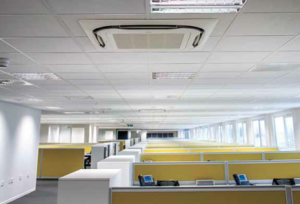
Choose the best systems available to you
The best air conditioning installers and providers will also be able to give you access to the best and most innovative solutions on the market. Technology has evolved hugely over the years, which means today’s systems are generally much more efficient than they were decades ago. Air conditioning plays a pivotal role in making homes and commercial environments more comfortable places to be, providing warm and cool air as and when it is needed. Some of the most innovative modern systems on the market can work automatically, detecting temperatures and changing their functions appropriately, giving you warm air when your environment becomes cool and cool air when temperatures rise to uncomfortable levels. Some systems are able to take warm or cool air from parts of a building where it is not needed and send it to places where it is.
Some non-domestic environments where air conditioning has a valuable role to play include factories, shops, warehouses, offices and schools. Air conditioning also plays an instrumental role in combatting illness and therefore reducing the amount of business days that are lost to absence. This can also mean students don’t need to fall behind in terms of learning. The way the systems purify air means they can stop allergies from being triggered and illness occurring. Their ability to reduce humidity means people can focus on the task in hand without having to face so-called ‘stickiness’ whilst they are working or learning.
Complying with regulations
Those in charge of environments like banks, shops, schools and warehouses may be met with sizeable penalties if they fail to provide the comfort workers, students and visitors require. If you don’t remain in control of temperatures, you could face a sizeable fine from the authorities and your reputation could also be hit hard.
Look for accreditation
It’s vital to ensure that any company installing air conditioning solutions for you is accredited by a reputable body. Their staff will also need to be criminal records-checked if they are to work in environments where vulnerable people live or study, such as care homes and schools. You should make sure the company is F Gas registered and has accreditation from bodies like the Construction Skills Certification Scheme (CSCS). When you opt for an accredited company, you can rest assured you’re dealing with a professional, reputable firm that complies with all relevant regulations and legislation.
Accredited and approved installers are more likely to offer you lengthy parts and labour warranties that can give you extra peace of mind and support if something does go wrong. The best installers will have experience in installing air conditioning units from a range of different manufacturers, and the companies will regularly invest in training to ensure their staff remain fully capable of carrying out the duties that they are tasked with.
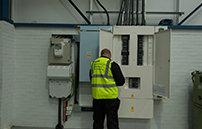
Another important reason for using accredited and reputable installers is that they will be able to perform their duties safely without putting you, themselves or anyone at risk. The company you choose should be able to install air conditioning units of all sizes, and most will be able to repair existing systems too. Always ensure a servicing or maintenance facility is included in the package that you opt for so problems can be resolved quickly once they arise and disruption is kept to a minimum. Even if your systems are out of action for a week or so, the impact on your productivity and comfort levels can be substantial.
It’s also advisable to choose a company whose engineers all work in-house. If this is not the case, you may find yourself paying more than you need to in order to cover the cost of expensive sub-contractors.
Air conditioning systems for larger businesses
Single-split, multi-split and VHR systems are amongst the most popular commercial air conditioning options for businesses who have sizeable amounts of space to cover. Today, air conditioning is used in the vast majority of commercial properties, including public areas, cafes, warehouses, factories and more. As such a wide range of needs have to be met, there are various setups, layouts and capacities available.
Though industrial air conditioning systems for large businesses are essentially based on the same technology as indoor units, their applications are very different. Single-split units are the least expensive types of systems and are an ideal match for small offices, cafes and shops. They can also be a great match for rooms where small amounts of computer servers are kept. You may be able to use multiple single-split units in large spaces, but you will need to have enough space outside of your building for each accompanying outdoor unit. This option can be more affordable than central systems and means you can still achieve comfort and efficiency if one unit breaks down.
Single-splits can be incredibly energy-efficient and reliable despite being the most affordable option available to you. Small businesses of all types and even some bigger organisations gain a great deal of comfort and efficiency from single-splits.
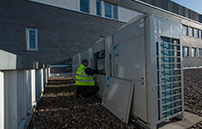
Multi-splits work in a similar manner to single-splits, but in this case, you only need to connect your indoor units to a single outdoor unit. Places, where you might see multi-split solutions in action, can include offices, restaurants, medical practices and shops. It’s clear to see why people would only want to keep one external unit. They might find the appearance of multiple outdoor units unsightly or they may be lacking in space. In any case, various options are available to you whether you require single or multi-split solutions.
When this solution is in place, you don’t need to use various models of the same indoor unit type. You can link a range of different indoor units up to your outdoor unit, which gives you a valuable level of functionality and means a host of different needs can be met. One thing you need to be aware of is that multi-split systems are generally much more complex to set-up than single-split systems, which explains why it really is important to spend time looking for the right team to make the installation. A larger amount of pipework will be needed, the solution is costlier and the installation will take longer. However, the results can be particularly desirable if you’re willing to invest the time and money into this option.
What the right solution for you is can depend on various different factors, including the heating and cooling capacity you’re seeking and your building’s layout, as well as your budget. A third solution is also available to you if you’re buying for a business. This is VRF or VRV conditioning. Whilst VRF is an acronym for variable refrigerant flow, VRV means variable refrigerant volume. Though the names differ slightly, they both refer to the same thing.
The technology was originally developed by the manufacturer Daikin, who prevented others from using the term VRV, which is why other manufacturers refer to it as VRF. There are two types of VRV/VRF available to you, which are heat pump and heat recovery. The heat pump systems are able to provide heating or cooling at any point, which makes them the perfect match for open plan environments. Heat recovery systems can provide heating and cooling to different areas simultaneously, which they can heat some rooms and cool others at the same time. This makes them great for building with many different rooms. They work by taking waste heat from around a building and use it to heat rooms and provide hot water.
VRV/VRF solutions are ideal for large commercial environments like hotels, shopping centres, mixed-use buildings and vast office environments. The systems are simple to control and can comprehensively meet the temperature requirements of larger buildings. These solutions also have short installation times, which means disruption can be kept to a minimum.
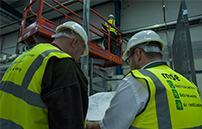
How much does it cost to get air conditioning installed?
The cost of having air conditioning installed can depend on a number of factors, such as the equipment that is being installed, how long it will take to be installed, the number of engineers required, the company you are using and more. Whilst you may experience a low standard of quality if you pay too little, this doesn’t mean there aren’t various affordable solutions available to you. It’s wise to shop around and compare the prices offered by a host of companies to get a consensus. As the products and solutions can vary do dramatically, it’s no surprise that the cost range can also be substantial. However, once you have invested in the right package, your comfort and productivity levels can rise significantly, and many businesses find the air conditioning solutions ultimately pay for themselves over time.
Are there legal requirements around installing air conditioning?
Employers based in the UK are legally obliged to ensure all enclosed workplaces have sufficient ventilation. Health problems that might occur when the right level of ventilation is not available can include tiredness, headaches and irritation to the skin and eyes, which can cause workplace absence and lower productivity levels. These symptoms are all part of SBS or Sick Building Syndrome.
The Workplace (Health, Safety and Welfare) Regulations 1992 state that employers must ensure a sufficient amount of fresh or purified air is able to enter the working environment. This air is needed so oxygen is provided and carbon dioxide removed, leading to humid air being diluted or removed and fresh air being supplied so employees can breathe with ease. Though windows alone can provide adequate fresh air in very small workplaces, most employees will need to invest in special solutions to avoid breaking the regulations.
Temperature is just as important as ventilation when it comes to providing a safe working environment. Though the temperature required can vary across employees, the guidelines say temperatures of at least 16°C, or 13°C in places where higher levels of physical exertion are involved. However, some businesses are exempt because of the nature of the work being carried out, such as kitchens, where lower temperatures are required so food can be stored correctly. Risk assessments normally need to be carried out in these situations to ensure the well-being of staff is not thrown into jeopardy.
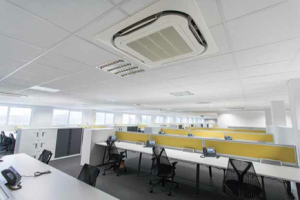
Other important pieces of legislation related to ventilation include the Control of Substances Hazardous to Health Regulations 1999, which protect employees from exposure to harmful substances via methods like ventilation. The Workplace (Health, Safety and Welfare) Regulations 1992 (regulation 5) instructs employers to check and repair ventilation systems regularly to ensure they are working correctly, whilst the Health and Safety (Consultation with Employees) Regulations 1996 instruct employers to make employees aware of their ventilation solutions.
Does air conditioning need servicing?
Air conditioning does need to be serviced on a regular basis to ensure that it can continue to perform to the best of its abilities and help you meet regulations about ventilation and temperature if you are an employer. If your system isn’t serviced on a regular basis, key parts including its filters and coils can break down or stop working. What’s more is that your system could become less energy-efficient if it is not serviced regularly, which could lead to spiralling running costs as well as lower-quality air.
The vast majority of air conditioning providers and installers will also be able to offer regular servicing to prolong the life of your solutions and keep them working efficiently for longer. Servicing and inspection services can pay for themselves over time due to the way they help you retain the energy-efficiency of your air conditioning systems. Problems that may have otherwise gone unnoticed can be identified during the servicing process too, which again helps you save money on costly repairs that would occur further down the line. The way that servicing allows minor problems to be identified before they turn into substantial issues is one of the main benefits of having your equipment checked regularly.
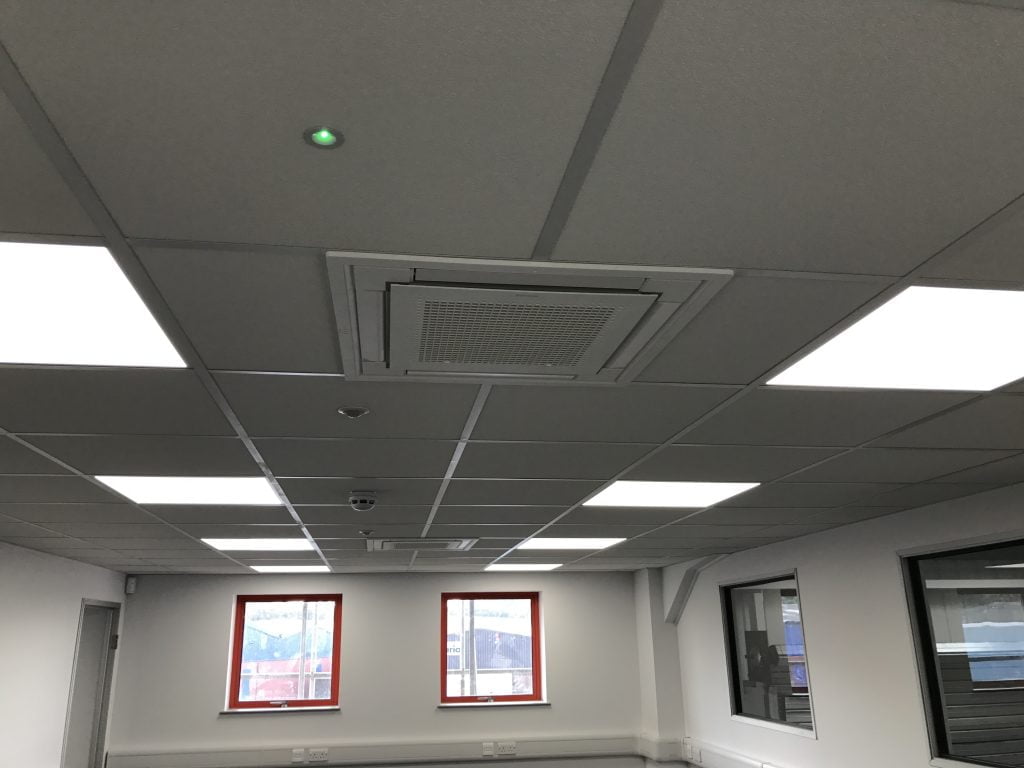
What steps should I take to get air conditioning installed?
If you are thinking of having air conditioning installed at your home or business premises, it’s a good idea to use the information in this guide and start looking online for solutions that meet your needs. If you need help with identifying the right system for your requirements, you can get in touch with MSE today to get the expert assistance that you need. As there are so many different solutions on the market, it’s wise to spend time looking for the best possible system for your specific needs.
No matter what your requirements are, you shouldn’t struggle to find an air conditioning and ventilation solution that meets your needs perfectly. More and more domestic and business customers are achieving the comfort and productivity levels they require after investing in high-quality air conditioning solutions. Once you have found and obtained the system that’s right for you, you shouldn’t need to replace it for a number of years.
Why should someone choose MSE to install and service their air conditioning?
There are many great reasons for choosing MSE when you require air conditioning installations, maintenance and servicing. At MSE, we have years of experience behind us and are able to introduce you to a variety of air conditioning solutions to meet your specific needs. We provide a wide range of specialist mechanical and electrical services for businesses of all sizes and have more than three decades of experience to draw upon, having worked with a diverse range of satisfied clients. We have a robust reputation for flexibility, innovation and value for money and always take the time to understand your needs so we can direct you towards the finest solutions for your specific requirements.
We specialise in commercial, residential and office air conditioning and have provided world-class solutions for public and private sector clients. We can provide air conditioning installation, servicing, inspection and repair services, and we’re always on hand to deal with your queries whenever they arise. Don’t hesitate to contact us today to learn more about the wide range of air conditioning solutions that we provide.
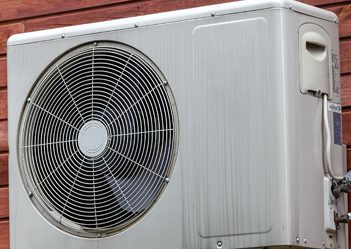
MSE can install a wide range of highly-innovative solutions built on years of intense research and development. The solutions we install can function on an automatic basis if needed and make intelligent decisions based on current temperatures inside and outside of buildings. Our services can help you win the battle against illness, prevent allergies from being triggered and greatly reduce humidity levels as well as ‘stickiness’. What’s more is that they can help employers comply with various regulations around temperature and ventilation to help you avoid sizeable penalties and keep staff comfortable, content and productive.
We are an accredited installer of Mitsubishi Electrics air conditioning systems and D1 approved installers of Daikin air conditioning. All our air conditioning engineers are criminal records-checked, which means we are able to carry out installations in places such as schools and care homes. We are also FGAs registered and have further accreditation from International Powered Access Federation (IPAF), Construction Skills Certification Scheme (CSCS) and Prefabricated Access Suppliers and Manufacturers Association (PAMSA).
We have an excellent reputation when it comes to providing first-class customer service, flawless, safe installations and in-depth advice and guidance on complying with changing regulations as well as vital industry issues. As an approved installer, we are able to offer an industry-leading five-year parts and labour warranty on air conditioning serviced and maintained by us. Furthermore, our access to the products and training courses of all leading manufacturers enables us to lead the way when it comes to installation and maintenance skills.
Talk to us today if you require air conditioning installations with a fast turnaround and no compromises on quality. We employ a robust team of fully-qualified service engineers and are able to attend to any air conditioning unit quickly to get it up and running again in no time at all. Whether you require air conditioning supply, installation, servicing, inspection or repair services, we are here for you.
Another great reason to choose us is that all our engineers are directly employed by us, working internally, which means you won’t find yourself meeting the cost of expensive sub-contractors when you opt for MSE. Why wait any longer to get in touch if you have been considering investing in a new air conditioning system and are ready to take the next step? Contact us today if you require the service of air conditioning specialists you can trust.
